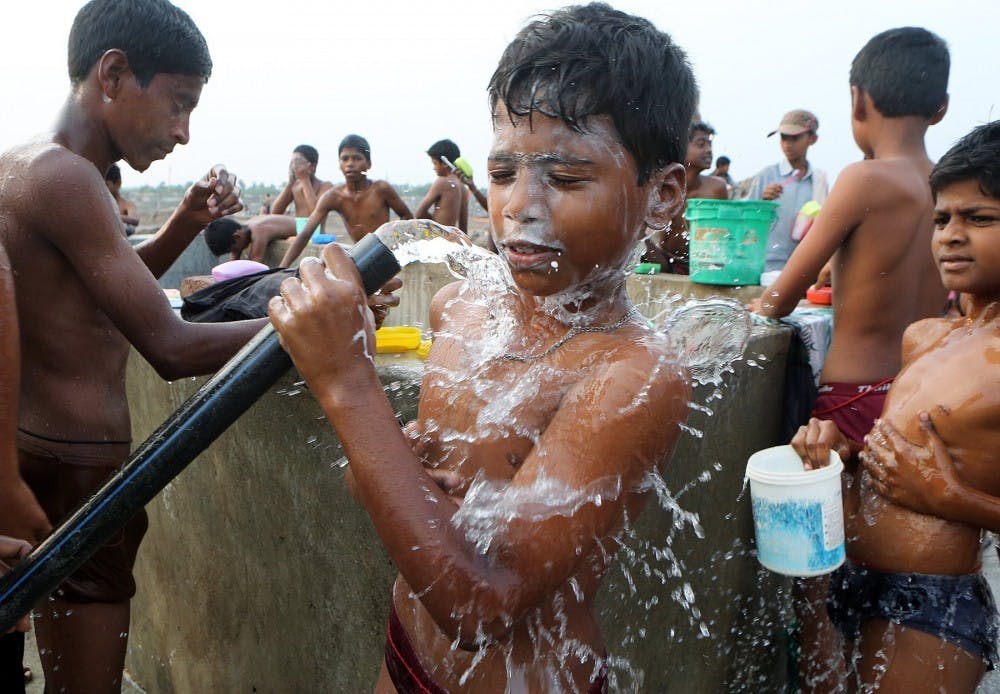One of the biggest complaints about the U.S. is that our wealth distribution is unfair and we have an inordinately high poverty level. Presidential candidate Bernie Sanders’ entire bid hinges on this supposed evil; others shame a developed nation in which “one in three children are born into poverty” to spur political action. It is important to understand something before making these grave claims, though. What does poverty in the U.S. really look like?
If you are convinced that this subject is not up for debate, first ask yourself: Do you have access to a water fountain that distributes clean, disease-free water? That puts you ahead of 2.5 billion people on the global poverty ladder. And if you are a college student here at ASU, you have far, far more resources than a sanitary water source.
The following graph pulls numbers from various census bureaus, and it demonstrates the chunk of the total current wealth on Earth owned by different regions, compared to the regions’ respective populations:
The U.S., Canada and Europe have disproportionately high levels of wealth compared to their percentage of global populations, much like the top five percent in the U.S. has a disproportionately high level of wealth compared to their share of the U.S. population.
It seems greedy, after having seen this graph, to complain about our current state instead of worrying about the state of other countries — the median household income in the U.S. is already five times the global median household income. How much richer do we need to become?
Furthermore, in the U.S. a child is considered to be born into poverty if he or she is born into a family that makes $30,000 or less a year. That is still three times the global median income (of about $10,000). In other words, a poor member of our society is three times richer than the middle class on a global scale (and that includes other wealthy nations).
Perhaps the most important thing that should be considered when speaking about wealth distribution is whether the top citizens gain more money at the expense of the lowest economic classes. While it is true that the top earners in the U.S. have been increasing their wealth at far greater rates than those in the bottom bracket, the bottom bracket has increased in wealth steadily since the 1960s.
Of course, in truth it’s a good thing that U.S. citizens wish to improve the economic standing of our poor, but putting these complaints in perspective on a global scale is useful because it should force U.S. citizens to open up to a more circumspect debate about wealth redistribution in the U.S. The conversation about improving the rate at which America’s lower class is gaining wealth needs to be had, but it should be made with our current relative wealth in mind.
Related Links:
War on Poverty is Ultimately Futile
Unheard voices of Phoenix's homeless youth
Reach the columnist at gheiler@asu.edu or follow @heilergeorge on Twitter.
Editor’s note: The opinions presented in this column are the author’s and do not imply any endorsement from The State Press or its editors.
Want to join the conversation? Send an email to opiniondesk.statepress@gmail.com. Keep letters under 300 words and be sure to include your university affiliation. Anonymity will not be granted.
Like The State Press on Facebook and follow @statepress on Twitter.




